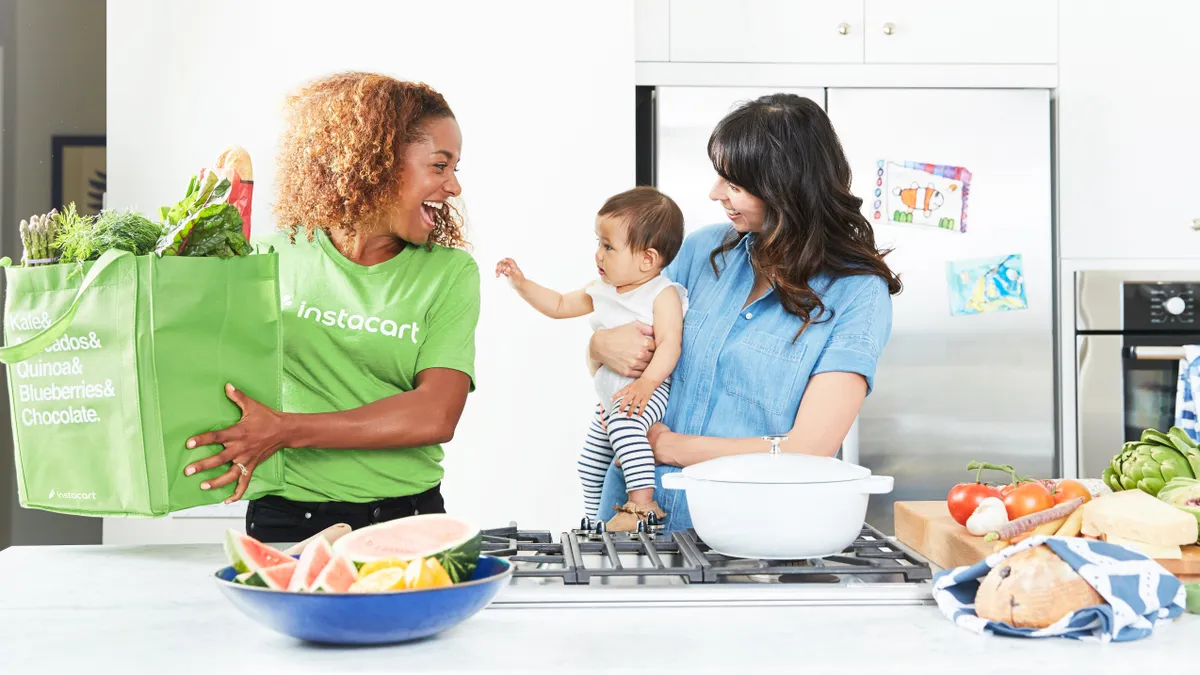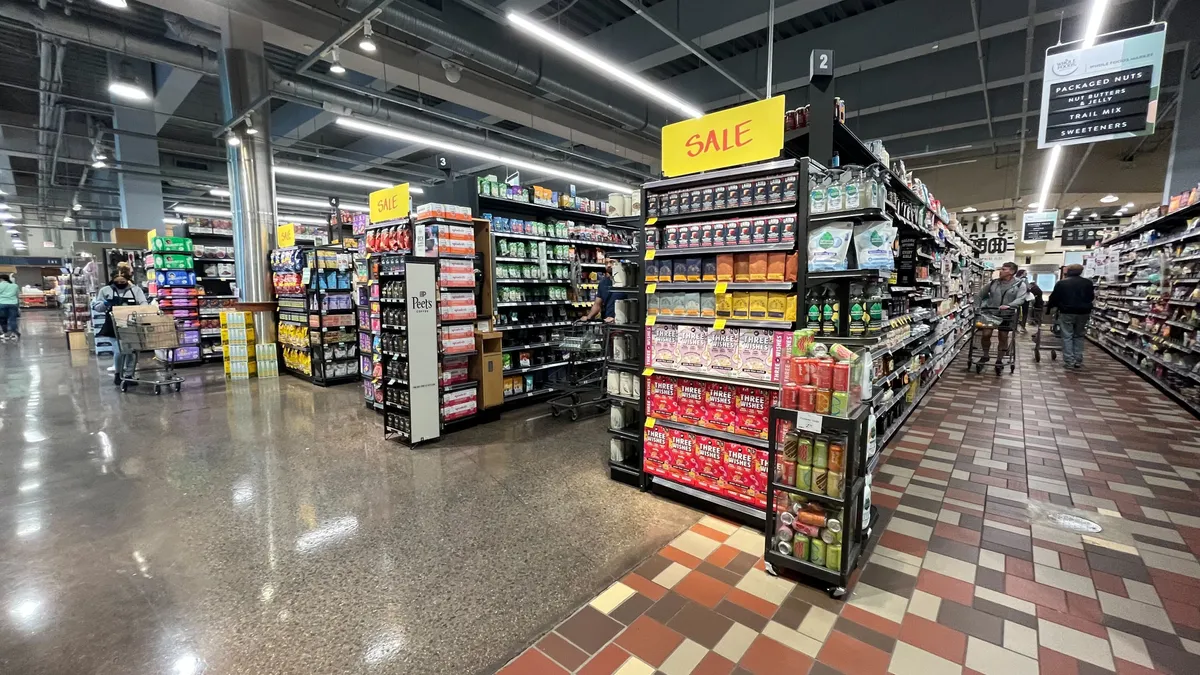Dive Brief:
- Instacart is nearing a deal with Canada’s leading grocer Loblaw to be its grocery delivery service provider, according to The Wall Street Journal. This would be Instacart’s first foray outside the U.S.
- The online delivery company has contemplated entering Canada in recent years, according to the paper. The recent Amazon/Whole Foods deal reportedly accelerated talks with three Canadian grocers, including Loblaw.
- While grocery e-commerce development in Canada lags that of the U.S., the market is picking up with retailers such as Walmart Canada, Metro and Loblaw testing the waters.
Dive Insight:
Ever since the Amazon/Whole Foods merger was announced, Instacart has been expanding rapidly. The company has seized the opportunity to partner with grocers across the U.S. that are scrambling to quickly ramp up their own e-commerce and home delivery efforts in the wake of the deal. It's also likely expanding knowing that it will likely lose Whole Foods, one of its largest clients and investors at some point.
Instacart’s goal is to reach 80% of U.S. households by 2018, and it is well on its way. The delivery provider has gained significant business in recent months, signing or expanding deals with Bashas, H-E-B, Stop & Shop and Wegmans, among others. As of mid-August, it’s added 80 markets so far this year — more than double the growth projected by the company — and now operates in 105 U.S. markets.
Now the company obviously sees an opportunity to expand north of the border as reverberations from the Amazon/Whole Foods deal could easily shake up Canada’s grocery landscape as well. With 13 Whole Foods locations in Canada, it appears likely the acquisition may accelerate the development of online grocery delivery there, too.
Canadians currently have few options for grocery delivery. A notable exception is Grocery Gateway by Longo’s, which delivers groceries throughout the Toronto area. And Canadian grocer Metro recently announced its intention to focus on home delivery in Quebec. Click-and-collect also is under-developed in Canada relative to the U.S., although Walmart Canada recently has been expanding grocery pickup throughout the Ottawa, Toronto, Calgary and Edmonton markets.
Michael von Massow, an associate professor in food economics at the University of Guelph, told The Canadian Press that Canadians lag behind Americans when it comes to using online grocery pickup services, though they are catching up and it is a market with potential to grow. E-commerce analytics firm Profitero estimates the online market there could be worth about 3% of CAN$120 billion by 2018, The Wall Street Journal said.
Instacart is contemplating potential grocery partnerships, including one with Loblaw, the nation’s largest grocer. Loblaw offers a click-and-collect program at about 100 of the company’s 2,400 locations across the country. A home delivery tie-up with Instacart certainly would not only give Loblaw’s e-commerce capabilities a boost but better position it to compete with the likes of Amazon and Walmart.
Going international would provide Instacart an additional growth avenue, as it seems well on its way to conquering available opportunities in America. But it also needs to be careful not to overextend itself and risk potential service, and possibly financial issues.










